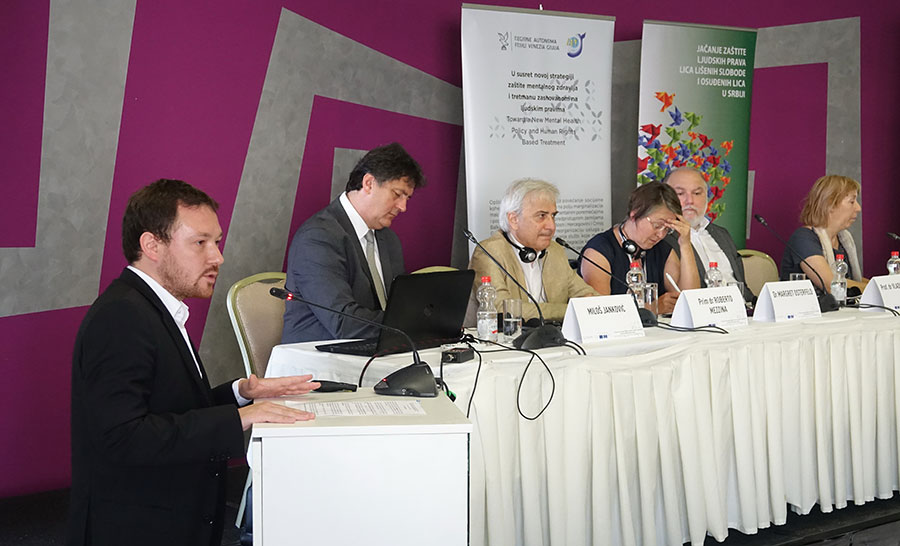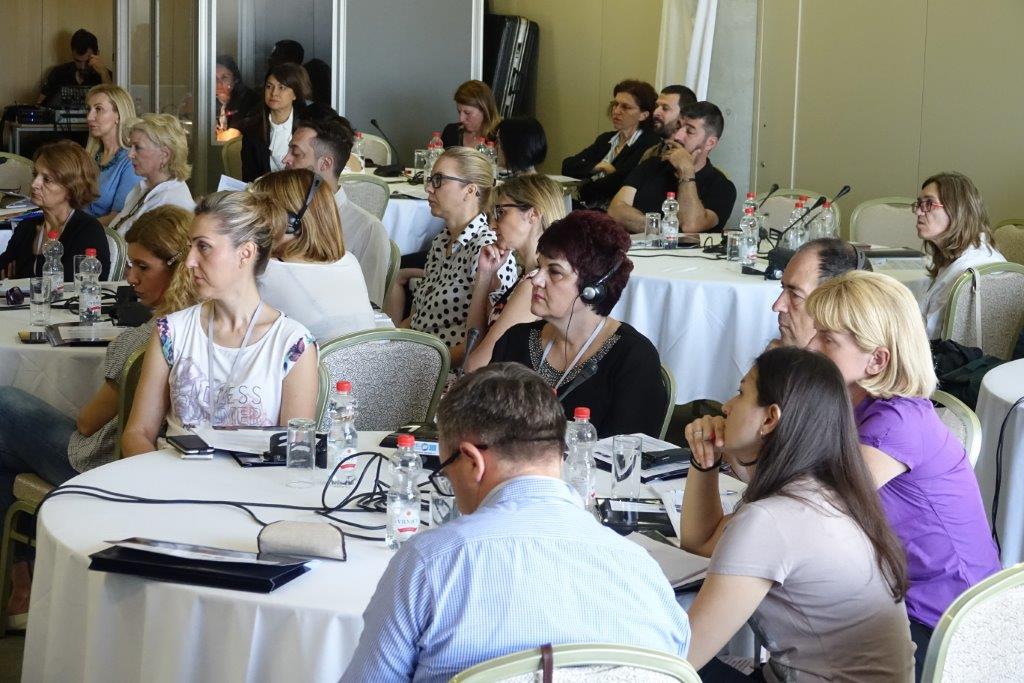A two-day intense dialogue “Towards new mental health policy and human rights based treatment” took place in Belgrade, on 08-09 June 2018.
More than fifty psychiatrists, psychologists, social workers, lawyers, patients and their family members, gathered to discuss intricacies of mental health policy rightly described by the Head of Council of Europe Office in Belgrade, Mr. Tim Cartwright, in his welcoming remarks, as one of the most difficult and complex areas of public policy: “Few areas of public policy are as vexed and complicated, as emotionally-charged and case-specific, as Mental Health, and that is without the associated added-dimensions of deprivation of liberty, reintegration and rehabilitation”.
Identified policy and implementation gaps by the CoE experts prompted Ministry of Health (MoH) to establish a WG to draft the new Mental Health Strategy. This conference contributed to policy dialogue and identification of strategic options, clearly stating that mental health issues cut across all state authorities’ jurisdictions and must be perceived as a joint endeavor. There is need for commitment by all parties, clear distribution of tasks and those in charge, and fixed time-frames. That is why in addition to a vision document, an operational accompanying Action Plan is a must.
The EU firmly supports Serbia on this path. Not only because “proper standards of mental health ensuring human rights and proper social care are part of Serbia’s negotiations with the EU, required not only for Chapter 23 dealing with fundamental rights, but also Chapters 19 and 28 covering social and health issues, but because mental health is a very important topic for us, as it a very human issue which increasingly affects society”, Mr. Nicolas Bizel, Head of the Operations of the Delegation of the European Union to the Republic of Serbia.
 This, as multi-disciplinary forum for exchange of views among professionals, academics, civil society, persons with mental disorders and their family members, brought very personal testimonies to the table. Olgica from New Vision, Association of mental health service users and their family members, expressed the appreciation that “Finally, after more than five years having a chance to be here, talk, contribute and listen”. The MoH WG promised to involve service users and their family members in the drafting process.
This, as multi-disciplinary forum for exchange of views among professionals, academics, civil society, persons with mental disorders and their family members, brought very personal testimonies to the table. Olgica from New Vision, Association of mental health service users and their family members, expressed the appreciation that “Finally, after more than five years having a chance to be here, talk, contribute and listen”. The MoH WG promised to involve service users and their family members in the drafting process.
Democratic debate touched upon legislative solutions, best practices and operational issues concluding that: protection of mental health requires involvement of all metal health service users, inter-sectorial cooperation, mobilisation of financial and human resources including pre-accession EU funds, feasibility studies with the most recent, appointment of regional coordinators for implementation of the mental health policy, establishment of an annual psychiatric and social institutions forum and society-wide awareness campaigns leading to de-stigmatization and prevention of discrimination. Deinstitutionalization should not lead to trans-institutionalization, “human rights in mental health are the new way forward leading to life-changing measures and asking for convergence of processes in psychiatry and social affairs”, Roberto Mezzina, Mental Health Department, Trieste, EQUAL project. Advocacy for true change will continue.
The conference was organized jointly by the Council of Europe (CoE), within the project “Enhancing Human Rights Protection for Detained and Sentenced Persons in Serbia”, implemented within the joint EU and CoE programme “Horizontal Facility for the Western Balkans and Turkey” and the International Aid Network (IAN) Belgrade office and the Trieste Health Centre within the EQUAL project – funded by the Friuli Venezia Giulia Region – L.R. 19/2000 – Italy.




